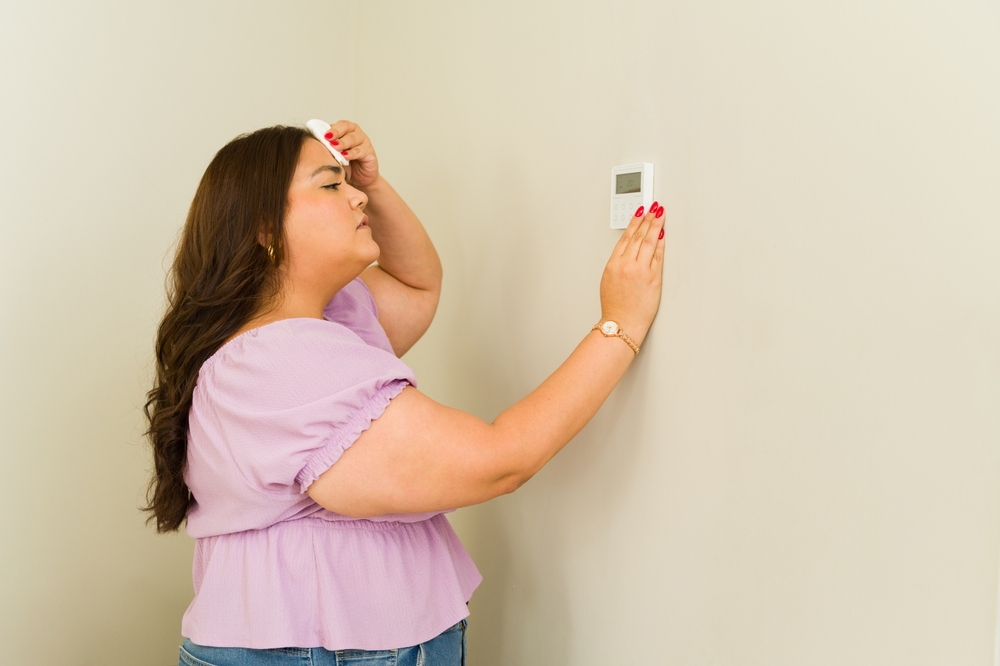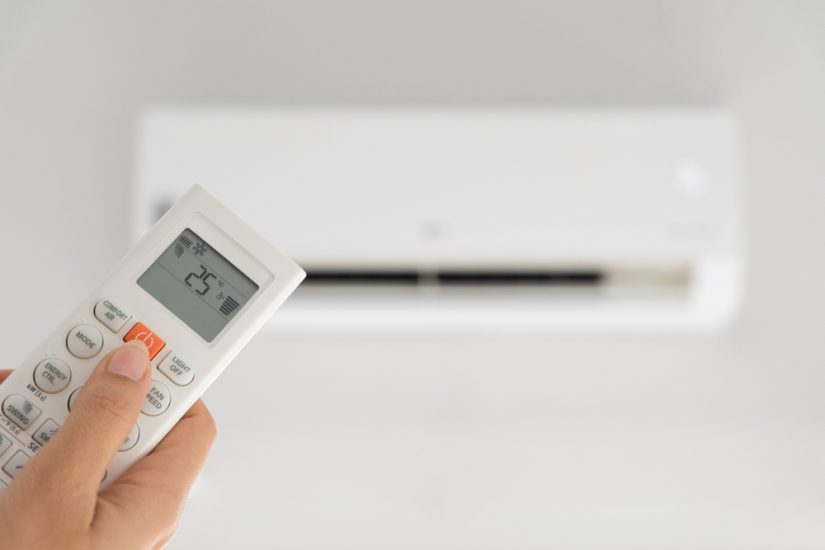
During the colder months, a properly functioning heater is your home’s warm respite, keeping the winter chill at bay. But what happens when your heater refuses to take a break, running relentlessly even when you would rather cozy up without it? The relentless hum of a heater can disrupt your comfort and lead to unwelcome energy bills. Here are the top 10 reasons for a heater that won’t turn off.
Faulty Thermostat
A malfunctioning thermostat is a common culprit for a heater that refuses to turn off. The thermostat is the control center of your heating system, and when it malfunctions, it can misread the temperature in your home. As a result, it signals the heater to keep running even when the desired temperature is reached.
Troubleshooting this issue involves checking the thermostat’s calibration and wiring. Replacing the thermostat may be necessary if it is beyond repair. Regular maintenance and occasional thermostat calibration can prevent this issue from occurring, ensuring your thermostat communicates effectively with your heating system.
Incorrect Thermostat Setting
A continuously running heater can sometimes be traced back to user error. Incorrect thermostat settings can cause your heater to operate longer than necessary. For instance, the “Hold” function, meant for manually maintaining a constant temperature, may inadvertently keep the heater active. Similarly, setting the thermostat fan to “On” instead of “Auto” will make the blower run constantly, leading to excessive heating cycles.
To prevent this, double-check your thermostat settings to ensure they align with your heating needs. Understanding the thermostat’s settings and using them correctly can go a long way in avoiding perpetual heating and reducing energy consumption.
Damaged Heat Exchanger
The heat exchanger is a critical component in a gas furnace. A damaged heat exchanger can disrupt the heating cycle by preventing the thermostat from receiving accurate temperature readings. As a result, the furnace may continuously run to try to reach the desired temperature, even if it’s already achieved.
To address this issue, it is prudent to have a professional HVAC technician inspect and repair or replace the damaged heat exchanger. Regular furnace maintenance can help identify potential issues with the heat exchanger before they escalate, ensuring your heating system operates efficiently and safely.
Stuck Relay
In your heating system, relays serve as switches that control the flow of electrical current to various components, including the blower motor. When a relay gets stuck in the “on” position, it continuously sends power to the component it controls, resulting in non-stop operation.
While some relays may be repairable by cleaning or repositioning them, others may need replacement. Consult a professional HVAC technician who can diagnose the issue accurately and ensure that your heating system operates as intended. Regular maintenance checks can also help detect and address relay problems early, preventing continuous heating and ensuring optimal performance during the colder months.
Worn Out or Faulty Controls
Worn out or faulty controls can disrupt the communication between your thermostat and the heating system. For example, a worn-out thermostat may not accurately read the room temperature, leading to prolonged heating cycles. Faulty pressure switches or circuit boards can cause miscommunication, instructing the heating system to keep running.
Diagnosing this issue involves a professional assessment to identify the specific control causing the problem. In many cases, replacing the worn or faulty control component is the most effective solution. Regular maintenance can help identify control issues early, allowing for timely repairs and ensuring your heating system operates efficiently and reliably.
Blower Motor Issues
Blower motor problems can manifest in various ways, including continuous operation, uneven heating, or reduced airflow. One common issue with blower motors is a lack of maintenance, which can lead to dust and debris accumulation, causing the motor to strain and overheat. If the blower motor fails to respond to the thermostat’s commands, it can keep running, causing discomfort and energy waste.
Identifying and resolving blower motor issues may involve cleaning, lubrication, or replacing the motor. Professional HVAC technicians can diagnose the problem accurately and recommend the most suitable solution. Regular maintenance that includes cleaning and inspecting the blower motor can help prevent these issues.
Limit Switch Malfunction
A limit switch typically consists of a sensor and a control mechanism. It’s designed to detect when the furnace or heating unit reaches the desired temperature. If the limit switch fails or malfunctions, it may inaccurately signal to the heating system that the desired temperature has not been reached, leading to the heater staying on.
Fixing a malfunctioning limit switch usually involves replacing the faulty switch, which should only be done by a trained HVAC technician. Regular maintenance can help identify potential issues with the limit switch before they cause prolonged heating operation, ensuring your heating system functions safely and efficiently.

Dirty or Clogged Filters
Dirty or clogged filters obstruct the flow of air through the heating system. This restriction can cause the system to overheat as it struggles to draw in air, resulting in non-stop operation. Regularly changing or cleaning your filters is essential to prevent this issue.
A simple maintenance task, like replacing or cleaning filters, can significantly improve your heating system’s efficiency and prevent it from running continuously. Neglecting this maintenance task can lead to higher energy bills, reduced comfort, and added strain on your heating system.
Electrical Wiring Problems
Common electrical wiring problems include loose or corroded connections, short circuits, or damaged wires. These issues can interfere with the signals sent between the thermostat and the heating system, leading to incorrect or continuous heating operation.
Addressing electrical wiring problems requires the expertise of a trained HVAC technician. Attempting to diagnose and repair electrical issues without the necessary knowledge can be dangerous and may lead to further problems. Seek help from a professional to safely resolve electrical wiring problems in your heating system and ensure it operates efficiently and reliably.
Inadequate Maintenance
Failure to conduct routine maintenance tasks, such as cleaning, lubricating moving parts, and inspecting components, can cause problems to go unnoticed. These unaddressed issues can accumulate and lead to a heater that won’t turn off. When key components, like the blower motor or heat exchanger, are not properly maintained, they may become less efficient or even fail.
Periodic professional maintenance can detect and address issues early, preventing continuous heating and reducing the risk of costly repairs. By investing in regular maintenance, you will not only avoid the inconvenience of a constantly running heater but also enjoy improved energy efficiency, lower utility bills, and a more comfortable indoor environment.
Choose a Reliable HVAC Service Provider for Your Comfort and Peace of Mind
Do not wait for the sweltering summer heat or freezing winter nights to recognize the importance of well-maintained HVAC systems. At House Pro Energy Solutions, we understand the importance of proper installation, timely repairs, and regular maintenance for efficient HVAC performance. As your premier HVAC contractors in Houston, TX, we are committed to ensuring your comfort and peace of mind.
From heating to air conditioning, our HVAC experts are ready to provide top-notch repair services, maintenance, and replacements. With a track record of excellence, we offer 24/7 support for all your HVAC needs. Call us today or fill out this online contact form to request an estimate or schedule your air conditioning repair or maintenance service, and experience the House Pro difference.

